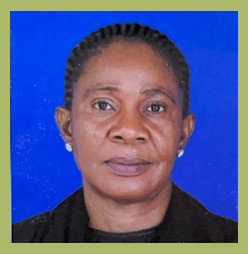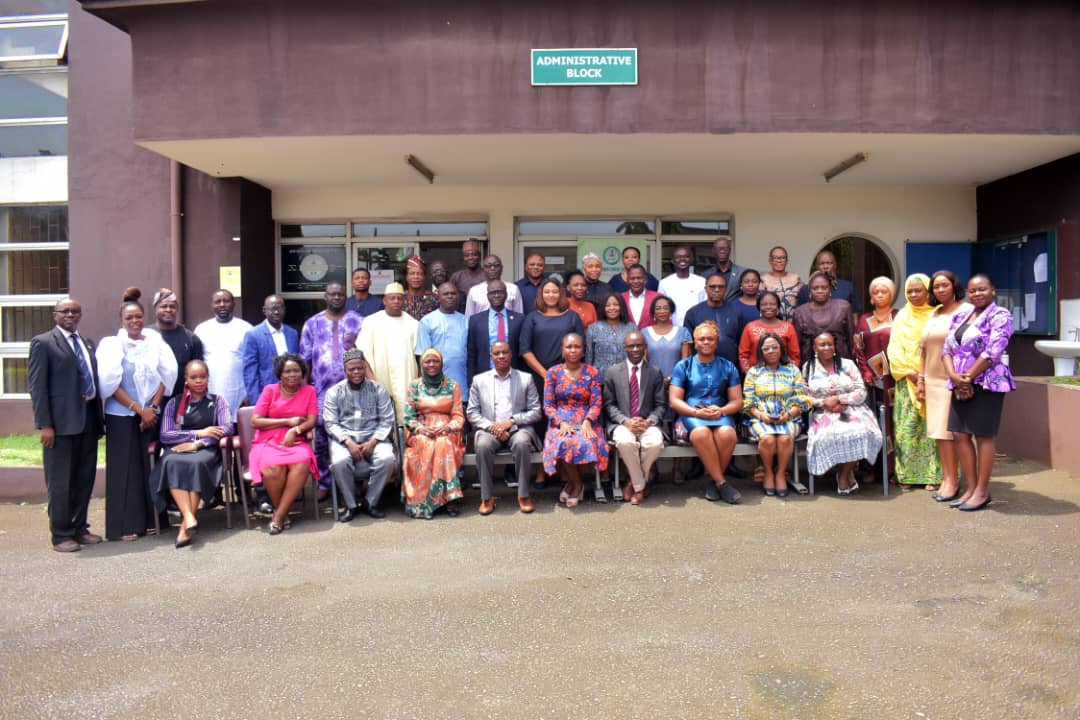
Departments
Discover the heart of our organization through our various departments. From customer service to research and development, each department plays a crucial role in fulfilling our mission to serve our clients with excellence.
OFFICE OF THE DIRECTOR-GENERAL
Organogram
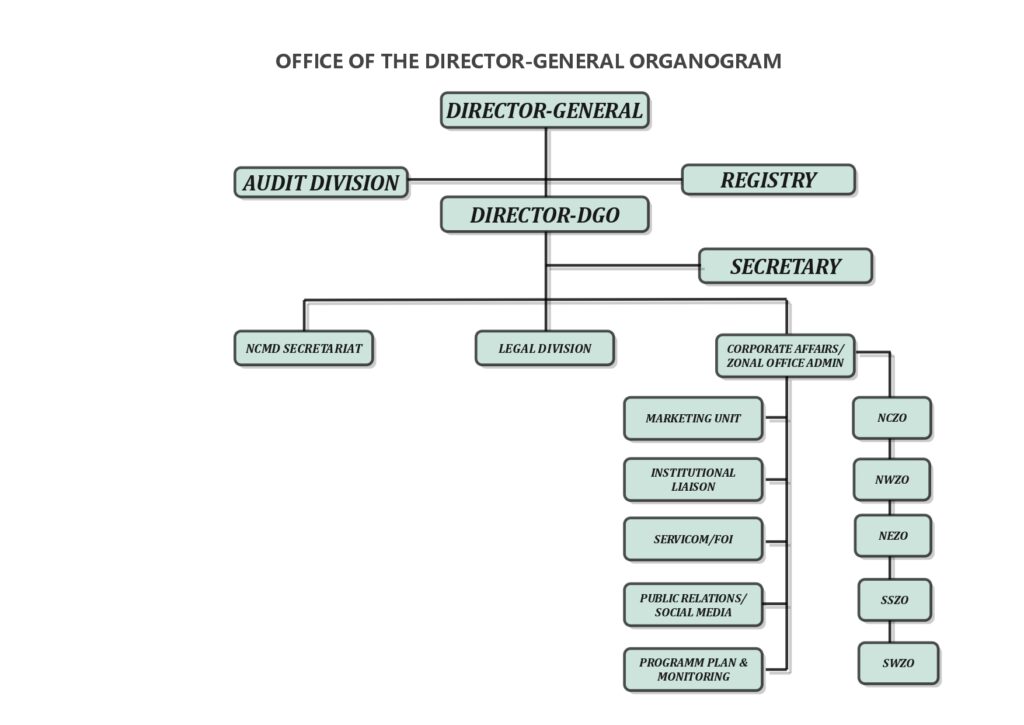
This Department provides administrative support and services for the Centre’s mandates. It is structured into four (4) Divisions and six Units (6) as outlined below:
Council Secretariat

Carries out Secretarial duties and functions of the Nigerian Council for Management Development (NCMD), the regulator of the Nigerian training sector.

Responsible for the registration of management trainers ,firms and institutions
Legal Services Division

Handles all legal matters of the Centre.

Ensure compliance to NCMD Regulation Standards.
Audit Division

Charged with the responsibility of ensuring strict compliance with financial regulations and Public Service Rules and Bureau of Public Procurement’s guidelines on procurement, disbursement and keeping of account records.
Corporate Affairs/Zonal Offices Administration
Marketing Unit

Plans and coordinates the marketing of the Centre’s programmes and services as well as maintains a database of prospects and clientele.
Institutional Liaison Services Unit

Liaises with relevant stakeholders such as government departments, international agencies and foreign government representatives for the purpose of mobilizing services, resources and technical support for the Centre.

Liaises also with regional and international MDI’s for the promotion of management development in Nigeria and the sub- region.
Servicom Unit

Coordinates and promotes service improvement and customer relations in line with Servicom Charter.
Freedom Of Information (FOI) Unit

Ensures compliance with the provisions of FOI as it concerns public records.
Public Relations/Protocol Unit

Responsible for building a favourable image, reputation and visibility of the Centre through various platforms, including social media. It also handles speech writing and securing of passages.
Programmes Planning/Monitoring Unit

Coordinates Management Committee meetings and develops the Centre’s corporate plans. It also engages in programme monitoring and evaluation. Collates CMD annual report. Custodian of CMD certificates.
ADMINISTRATION AND HUMAN RESOURCES
Organogram
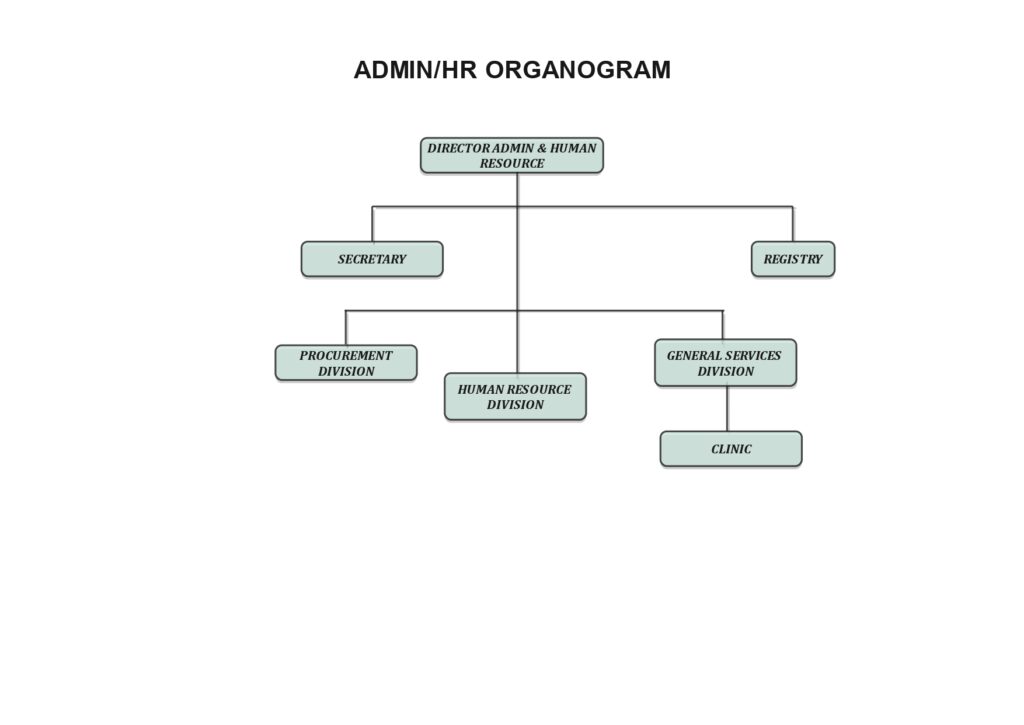
THE ADMINISTRATION AND PERSONNEL MANAGEMENT DIVISION
The Administration and Personnel Management Division’s functions include the following:

Planning and coordinating staff development efforts and activities.

Planning and coordinating induction programmes for new employees.

Planning and developing comprehensive staff training plans and programmes and reviewing existing ones.

Seeking and obtaining approvals for the release of staff for training.

Processing staff training requests and preparing proposals for management’s consideration in accordance with established staff training policy and career paths.

Planning the career path of staff in accordance with management objectives and their career needs.

Liaising with other departments for the designing of training programmes for staff.

Developing and maintaining effective Staff Development Information and Appraisal Systems to provide up-to-date information on staff.

Coordinating the preparation and review of job specification documents for all staff.
GENERAL SERVICES DIVISION
The General Services Division is a support division to all the Centre’s activities. The Division is charged with the following responsibilities:

Leasing of office and residential accommodation for qualified staff.

Servicing/maintaining of machines and equipment.

Overseeing the general cleanliness of the premises.

Maintenance of telephone and intercom services.

Maintenance of building and other facilities.

Payment of official rates and bills, e.g PHCN, Water and Tenement Rates.

Maintenance of Security.

Supervision of contract jobs and other related matters.

Provision of services to the Management Tenders Board.

Maintenance of the Vehicle pool.
PROCUREMENT DIVISION
The Procurement Unit is a support division to all the Centre’s activities. The Division is charged with the following responsibilities:

Analyzing the Centre’s needs and developing a procurement plan accordingly.

Registration of Contractors.

Supplier Management: Establishing and maintaining relationships with contractors/consultants, negotiating contracts, and managing supplier performance to ensure adherence to quality, cost, and delivery standards.

Overseeing the execution of the Procurement plan to ensure it is conducted in a cost-effective way.

Monitoring procurement performance against goals set forth in the plan.

Contract Management: Drafting, reviewing, and managing contracts with suppliers/consultants to ensure compliance with legal and regulatory requirements.

Purchasing: Executing the purchase orders, negotiating prices, terms, and conditions, and ensuring timely delivery of goods and services.

Risk Management: Identifying and mitigating risks related to procurement activities, such as supply chain disruptions, quality issues, and compliance risks.

Compliance and Ethics: Ensuring procurement processes adhere to relevant laws, regulations, and the Centre’s policies, as well as promoting ethical practices and transparency in supplier relationships.

Vendor Qualification and Evaluation: Assessing potential suppliers based on criteria such as financial stability, quality standards, capacity, and sustainability practices, and conducting regular performance evaluations of existing contractors.

Continuous Improvement: Continuously evaluating and optimizing procurement processes, systems, and practices to enhance efficiency, effectiveness, and value delivery to the Centre.
ACCREDITATION, QUALITY ASSURANCE AND CURRICULUM DEVELOPMENT
The NCMD Act, 2022 (As amended) Laws of the Federation of Nigeria which established the Nigerian Council for Management Development (NCMD), empowers it to set up and maintain standards in Management Education, Training and Development, including Accreditation of Trainers and Training Institutions.
The Accreditation and Curriculum Development Department is charged with carrying out the Centre’s role of standardization of capacity building activities through streamlining and control.
To achieve the Centre’s goals, the Accreditation Division in the Accreditation Department was set up to manage the Accreditation assessment for standardization purposes and recommendations to the NCMD.
Divisions of the Accreditation and Curriculum Development Department
The department has three divisions:
Curriculum Development and Mandev Division

Moderate, coordinate and facilitate the development of curriculums for training and development in both private and public firms/institutions.

Formulate and establish guidelines/standards required for firms/institutes to operate in line with international standards.

Develop and promote the acquisition of requisite skills and knowledge required for the setting of a high national standards of management development training (TTT) leading to the award of Accreditation Certificate.
Regulation, Compliance and Standard Division

Advice and provide to the Council , Technical information on standard of operations that will guide every stakeholder in the industry

Monitor and evaluate from time to time the training programs and adherence to standard in the industry
Sensitization, Mobilization and Accreditation Division

Embarking on activities that create awareness of the necessity of accreditation.

Making sure that every operator in the industry is accredited and maintains a database of accredited trainers and training institutions.

Mobilizing stakeholders to promote and support the standardization in the industry.
INFORMATION AND COMMUNICATION TECHNOLOGY
Information Communication and Technology is structured into three (3) Divisions:
LIBRARY AND DOCUMENTATION DIVISION
In the last few decades, the Library has gradually revolutionized its activities from just an environment where books are kept to become the nerve Centre and information resources engine room of any progressive organization. This is because information has been recognized as power and an essential ingredient for vital productivity of goods and efficient services in various establishments.
According to Act No. 51 of 1976, which gave legal backing to the existence of CMD, one of its major mandates is to establish and maintain an up-to-date library for management studies. To this end, the Library and Documentation Division was established in 1974. It primarily exists to enhance the effective and efficient performance of the Centre’s activities by providing library and information services to all departments of the organization.
The Library with the responsibility of acquiring, controlling and disseminating information becomes vital to various organizations, apart from catering for the needs of the CMD and those groups of people having an interest in a clear exposition of concepts in modern organization and management, it also caters for:

Advanced students who are entering or about to enter the practice of management.

Management educators, trainers, researchers and specialists in institutions and agencies.

Planners of managerial manpower at the Federal, State and Organizational levels who contribute to the full attainment of National Economic objectives; Entrepreneurs, Consultants in Management.

Practicing Managers and Chief Executives who need a continuing reference, which integrates both the theory and practice of modern management etc;

Library consultancy services, which include establishment of new libraries.

Computerization of library collections.
The stock level is over 40,000 volumes of management related booked/monographs and 700 business and management periodicals Branch Libraries are maintained with about 10,000 volumes each in Abuja, Owerri, Ibadan and Kano Area Offices respectively.
The Library observes the following opening hours:
The Library complex has a capacity to accommodate:
Other features include:

Conference Room

Tea/Coffee Room

Pantry lodge

Children’s Library, etc.
The ultra-modern library complex is fully automated with internet services, for provision of speedy and easy access to information, with facilitation of reformatory and combination data from different sources.
ENTREPRENEURSHIP AND BUSINESS DEVELOPMENT
The Entrepreneurship and Business Development Department (EBDD) is responsible for:

Promoting entrepreneurship development in the country;

Capacity building and provision of business support services to practicing and potential entrepreneurs and Micro/Small/Medium Enterprises; and
Strategic Objectives
The strategic objectives of the department include:

Carrying out training and providing consultancy/advisory services to client organizations;

Conducting research on strategic areas in entrepreneurship;

Designing relevant training workshops in entrepreneurship;

Developing micro and small enterprises’ clinics for all sectors;

Establishing business incubation and demonstration centres;

Creating entrepreneurship database for the department; and

initiating institutional collaborations and partnerships with relevant local and international agencies.
Departmental Structure:
The department is made up of three divisions:
Entrepreneurship And Development (ED) Division:

Designing and implementing SME-based training programmes;

Designing and implementing poverty alleviation training programmes as well as other relevant programmes in line with current global trend and Federal Government policies and programmes;

Designing training programmes on start-up, management, finance and sustainable operations of the MSMEs sector in Nigeria;

Conducting feasibility study and writing of business plan;

Promoting creativity and innovation in entrepreneurship;

Engaging in inter-agency collaboration required to promote development of the MSMEs subsector; and

Engaging in exchange programmes with relevant public and private institutions with the aim of identifying and adopting best practice in entrepreneurship development.
Business Advisory And Consultancy Services (BACS) Division:

Supporting entrepreneurs to write and interpret business plans;

Conducting feasibility studies for Nigerian enterprise owners;

Providing consultancy and advisory services for Nigerian enterprises;

Exposing intending entrepreneurs to practical experiences through field visits;

Engaging in inter-agency collaboration and cooperation in promoting entrepreneurship development;

Engaging in exchange programmes with relevant public and private institutions with the aim of identifying and adopting best practice in entrepreneurship development; and

Providing business advisory services to small-scale enterprises.
Women And Youth Empowerment (WYE) Division:

Designing and implementing gender-based development training programmes;

Empowering Women through capacity building, particularly those who have talent for certain vocations and enterprises;

Providing advisory and consultancy services to Women and Youth entrepreneurs;

Providing support services for policies and programmes that promote mainstreaming of Women activities in the socio-economic development of the nation;

Collaborating with institutions (National, International, Private & Public) that have track record of promoting Women and Youth empowerment and advancement;

Partnering with NGOs/ CBOs and Government for Women and Youth advancement; and

Organizing public lectures/ seminars and symposia for Women and Youth empowerment.
ECONOMIC MANAGEMENT
Organogram
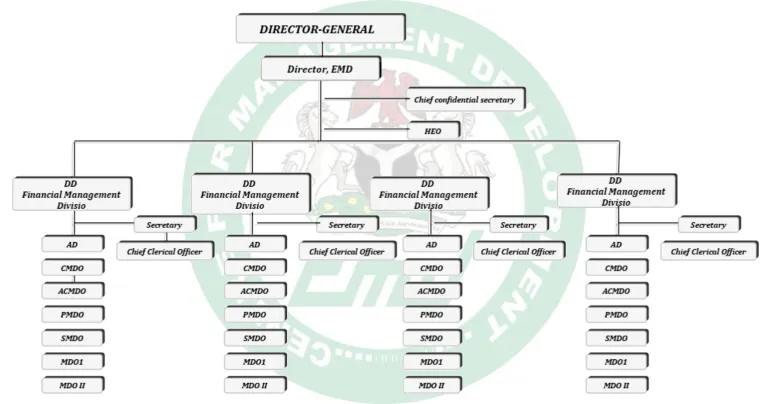
CORE MANDATES OF ECONOMIC MANAGEMENT DEPARTMENT (EMD)

To serve primarily as a training Centre for economic planners, budget and project officers at the Federal, State and Local Government levels;

To develop and strengthen specific skills that will enhance the quality of management of the national economy at the micro, macro, and sectoral levels

To be a policy laboratory for vigorous and sustained development and promotion of highly specialized skills required for enhancing efficient and effective planning and management of the Nigerian economy;

To organize and conduct specialized training courses and programmes designed to strengthen the capacity of senior public functionaries in the formulation, analysis, implementation and monitoring of economic development plans, budgets and policies;

To organize and conduct courses, workshops and seminars which address specific aggregate macro, sectoral and micro economic issues of interest and concern to all levels of government and combinations thereof;

To undertake, commission, and participate in in-depth research, studies, and consultancy services in relevant fields to –
- Improve the quality and coverage of courses and programmes of the Centre
- Enhance the understanding of workings of the Nigerian economy at the macro, sectoral and micro level of analysis;
- Carry out high quality macroeconomic policy research, both internally and in collaboration with external stakeholders, including institutional and individual research
- Cater for national and specific organisational objectives;
Mandates of Division in EMD
Macro Division

Train economic planners, policy makers and analysts, budget and project officers at the Federal, State, and Local Government levels and the private sector in macroeconomics and macroeconomic management.

To develop and strengthen specific skills to enhance the quality of management of the national economy at the macro level.

To organise and conduct specialised training courses and programmes designed to strengthen the capacity of senior public functionaries in the formulation, analysis, implementation, monitoring, and evaluation of economic development plans, budgets, and macroeconomic policies;
Sectoral Division
Financial Management Division

To develop and strengthen specific skills in financial management to enhance the quality of management of the national economy; and

Promote highly specialized skills required for enhancing efficient and effective planning and management of the Nigerian economy
Economic Policy and Programs Division

To carry out economic policy studies, design, analysis, and evaluation to enhance economic management at Federal, State, and Local Government levels; and

Relate with national and international economic management institutions to promote national economic development
FINANCE AND ACCOUNTS
Organogram
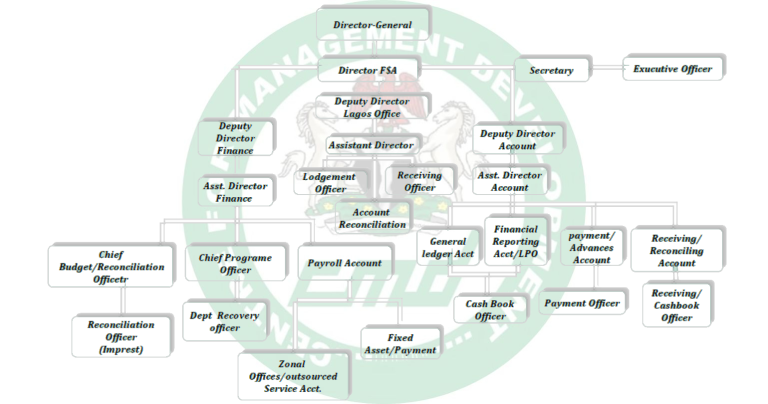
Mandates of Finance & Accounts Department

Ensuring compliance with Financial Regulations, Accounting Codes and all other
extant rules in accounting for all public funds.

Compilation of Centre’s Annual Budget.

Ensuring effective budgetary control through proper budget implementation in line
with approved allocation.

Ensuring that all funds received by the Centre are utilized for the purposes for which
they were mapped out for and in accordance with laid down procedures and in line with Financial Regulation and other extant rules.

Monitoring and evaluation of Centre’s yearly Budget performance.

Liaise with the Budget Office of the Federation, Federal Ministry of Finance for
adequate and timely release of funds.

Record keeping, maintenance of the Statutory Books of Accounts (Overhead and
Capital accounts) of the Centre.

Preparation and timely rendition of all statutory Financial Returns such as Budget
Performance Report, etc. to relevant Offices of the Government.

Ensuring regular training of the Departmental staff to enhance optimum productivity;
and

Ensuring that Assets are properly recorded in the books.
RESEARCH AND CONSULTANCY
Organogram
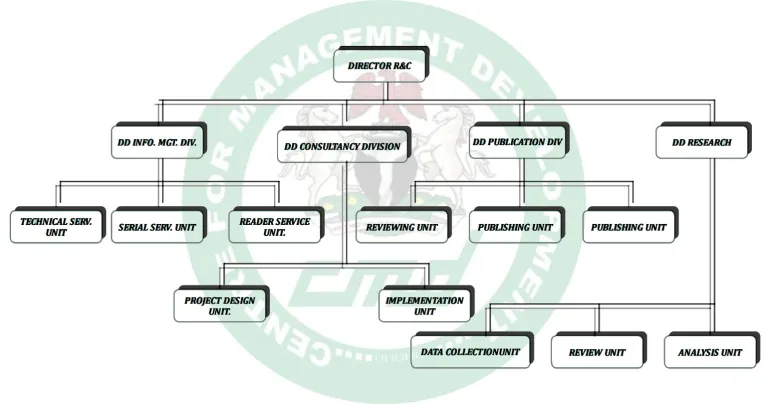
This Department is charged with the core mandate of the Centre. This Department is comprised of four divisions as outlined below:
Research Division

This Division sponsors, promotes and conducts research on modern management of various facets on both private and public sectors of the economy. It also coordinates a couple of workshops on various research work.
Consulting Division

This Division handles consultancy assignments and advisory services for both public and private firms for the Centre. It also coordinates workshops on consultancy skills.
Publications Division

This Division is charged with the responsibility of publishing journals, research papers and books on modern management. The journal accepts both private and public well-researched papers and advertisements from organizations.
Information Management Division (Library)

This Division has a world class up-to-date library facility. It is a well organized and safe space for study and research purposes. It renders services to staff as well as the general public. It also coordinates workshops on information management.
Programme Support Division

Produces call letters and workshop materials and issues training materials.
LEARNING AND DEVELOPMENT
Organogram
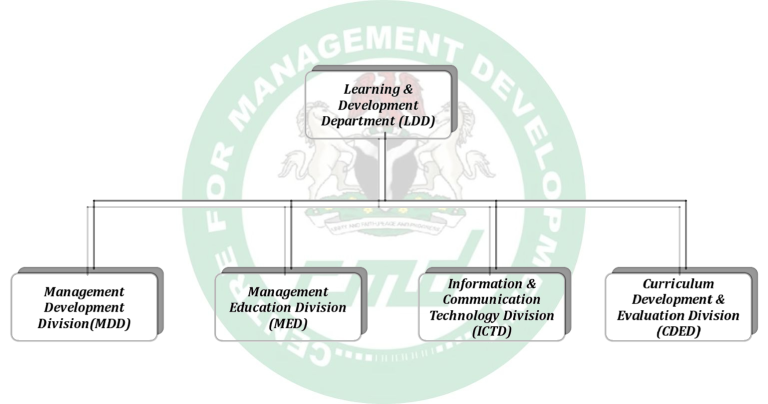
The Department (LDD) comprises of four (4) Divisions as highlighted in the chart and the services offered by the department include:

The design and delivery of scheduled and in-plant training programmes.

Soliciting for in-plant training programmes and training consultancy

Designing and executing training consultancy assignments.

Provide advisory and consultancy services for human capital development.

Designing and coordination of staff development training programmes.

Provide management advisory services for higher productivity

Develop and deliver ICT Trainings

Deploy and manage Network/Internet Access facilities

CMD website development and maintenance

Maintain social media accounts (LinkedIn, Facebook, Instagram etc.) for the Centre.

Render system support activities to departments.

e-support services, e.g. virtual meeting/training, sending of e-call Letter, e-record maintenance, etc

Curriculum review and design of management development programmes

Compilation of Centre’s Annual Budget.

Monitor curriculum of accredited institutions/firms

Coordinating postgraduate programmes

Coordinate students’ research projects

Facilitate CMD scheduled and in-plant programmes

Organize seminar on topical issues
Management Team

Bitrus Danharbi Chinoko
Director-General

Dr. Faleye O.S
Director, Finance & Accounts

Francis I. Iyanya
Director, Office of Director General

Mrs. Stella Gabriel Edem
Director, Entrepreneurship and Business Development

Akonti O. Emmanuel
Director, Accreditation & Curriculum Development
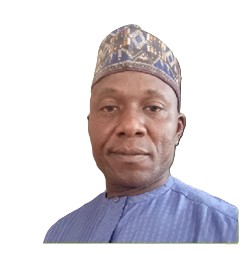
Kabiru Aliyu
Director, Admin & Human Resource
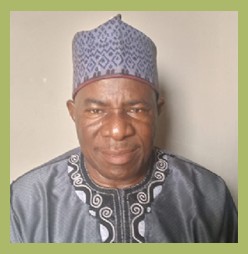
Ohida Adams Isa
Ag. Director, Learning and Development

Efita Ephraim
Ag. Director, Research & Consulting
